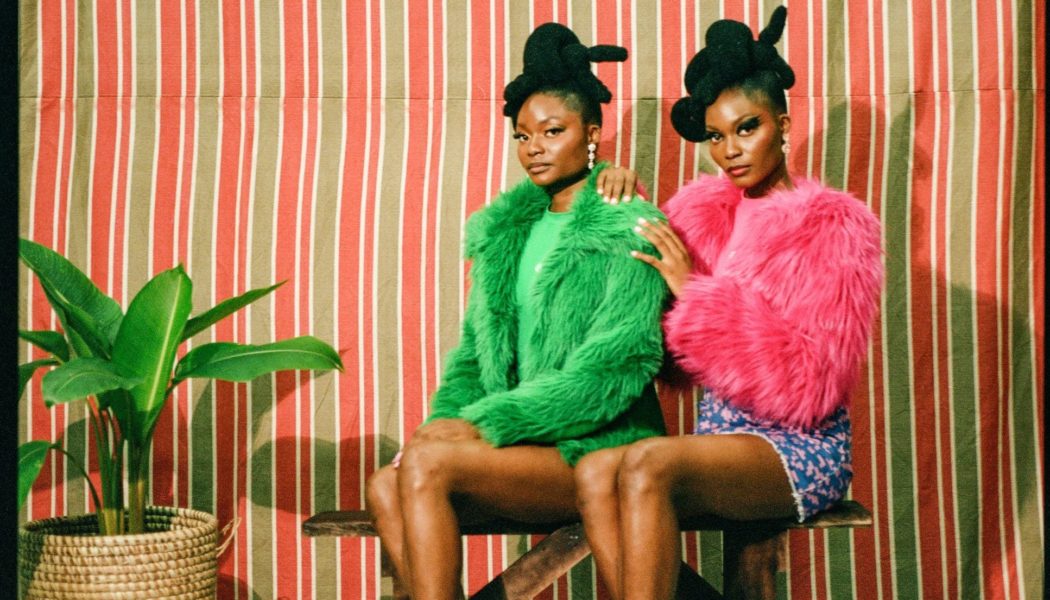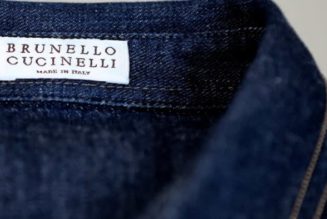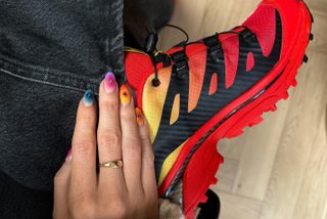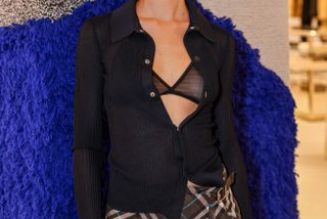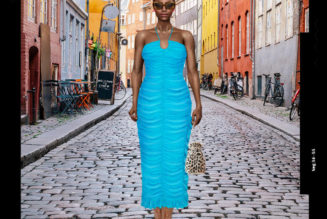
Yinka Ash, founder and CEO of the multi-brand boutique Ashluxe, has mastered the efficacy of business, and it is evident in the way he speaks, the advice he cares to give, and the structure he has built. In essence, he’s the guy who built a personal brand but also a reputable fashion convention that made shopping from international brands more accessible to Africans.
Ash’s introduction to fashion began a decade ago while he was still a university undergraduate. He had been doubling as a personal shopper, purchasing fashion items for friends who couldn’t navigate the payment restrictions in Nigeria at the time, but he never thought of it as a business. Instead, he loved the experience it afforded him and weaponized that— opening his first store immediately after studying at Caleb University, Lagos, and building his clientele. His business concept was structured, typically, he would travel, purchase, and return to sell—and it worked fine.

The more the business bloomed, the more he was willing to explore, so he immersed himself in trends and ethered himself around streetwear culture, which gave him the liberty to understand what his audience wanted. These formative and instinctual moments prepared him for the launch of his brand, Ashluxe, in 2019.
The first impression of Ashluxe is that it’s a luxury streetwear brand with an avant-garde sartorial aesthetic. Impressively, it also has a charming, youthful exuberance that appeals to a very young, lively audience across the continent and beyond. Over the years, the brand has been showcased as a lifestyle entity, and that’s the sort of vision Yinka Ash had for it when he first started.
“When I launched, I didn’t see any brand that was like Ashluxe. I saw a lot of brands that were priced a lot below premium,” he said. He added that he didn’t have any brands to look to in terms of price point and design. “But the fact that I was selling a lot of international brands, Off-White, and the rest in my store, Givenchy, Balenciaga, there was a price point I looked at.” Ash shares that a certain quality was expected of the high-end brands he was carrying. Despite not seeing it firsthand, he aspired to introduce the same quality into the African fashion market.
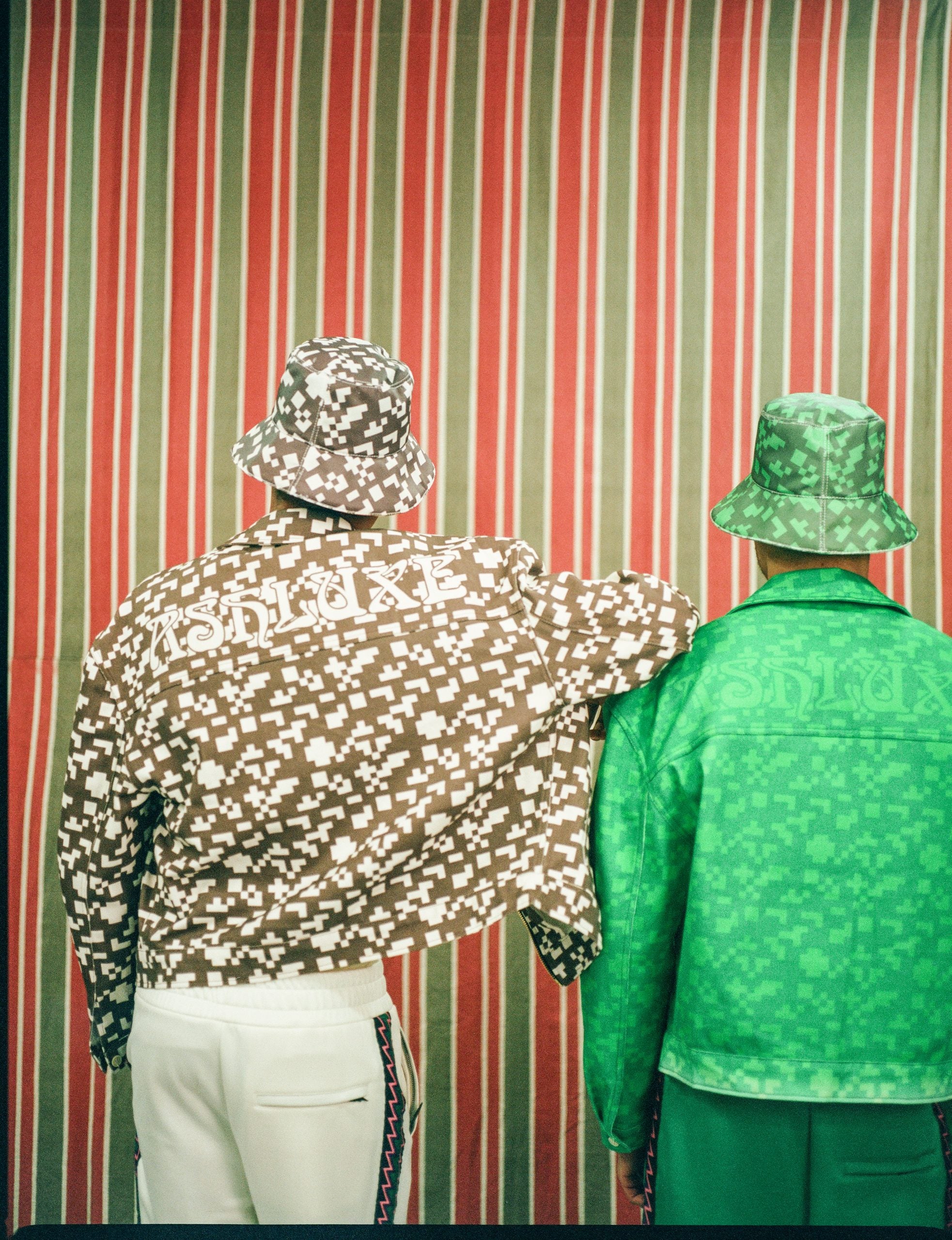
In nearly five years since starting out, Ash has managed to put out six collections. His first, Scar-10, flamed a controversy because of its plainness and the price tag. Yinka wanted a basic graphics collection featuring mainly white and black colors, but the public didn’t think the price was worth it.
“The T-shirts were going for the equivalent of about $50, which then was probably about N25,000 or less. And people thought it was too expensive at the time, especially for a Nigerian brand. But I didn’t stop. I didn’t reduce my quality because of it. I knew what I was offering,” he recalled.
Other collections include “Element” featuring hoodies, knee-length boots, sweatshirts, cropped shirts, and baggy sweatpants, all with the colors representing the four elements— earth, fire, water, and air. The Greek God-inspired the “Apollo” the third collection. The fourth collection called ‘Harmonious Discord’ was created to pay homage to Festac ’77— a month-long Pan-African art and cultural event that happened in 1977 in Lagos. The collection looked back to that moment as a major starting point for the culture and artistic spirit that has flourished for decades but also features experimental and vibrant colors. The fifth collection titled “dream + reality” represents the zeitgeist of the 1920s, recognizes the stylish liberty of black people, and features pixel-printed suits, furred blazers, ripped shoulders, mini-skirted suits, and tight gowns.

The brand’s most recent collection, “Kalakuta Republic,” stems from Yinka’s decade-long love for the music legend Fela Kuti. “Growing up, my father used to listen to Fela’s music. There are a lot of his songs that just stand out, as I remember a lot. It gives me so much nostalgia and [each song] also inspired me to love the person I was,” he told ESSENCE.
Ash also shares that he saw how even politically, Fela was a strong figure that people listened to. “He didn’t care what people thought. He didn’t care about losing everything that he had. He was ready to speak up for people and I love that about him,” the designer added.
On the origins of Ashluxe, he expresses that he originally was creating regular graphics with nothing serious tied to his designs. In 2021, after the pandemic, he says he started to take a different approach largely due to being inspired by native aesthetics. “So the Nigerian or African history, errors, culture, people–I started to do a lot more research around that. And I went back again and started to build a relationship with [Fela Kuti’s] family.”
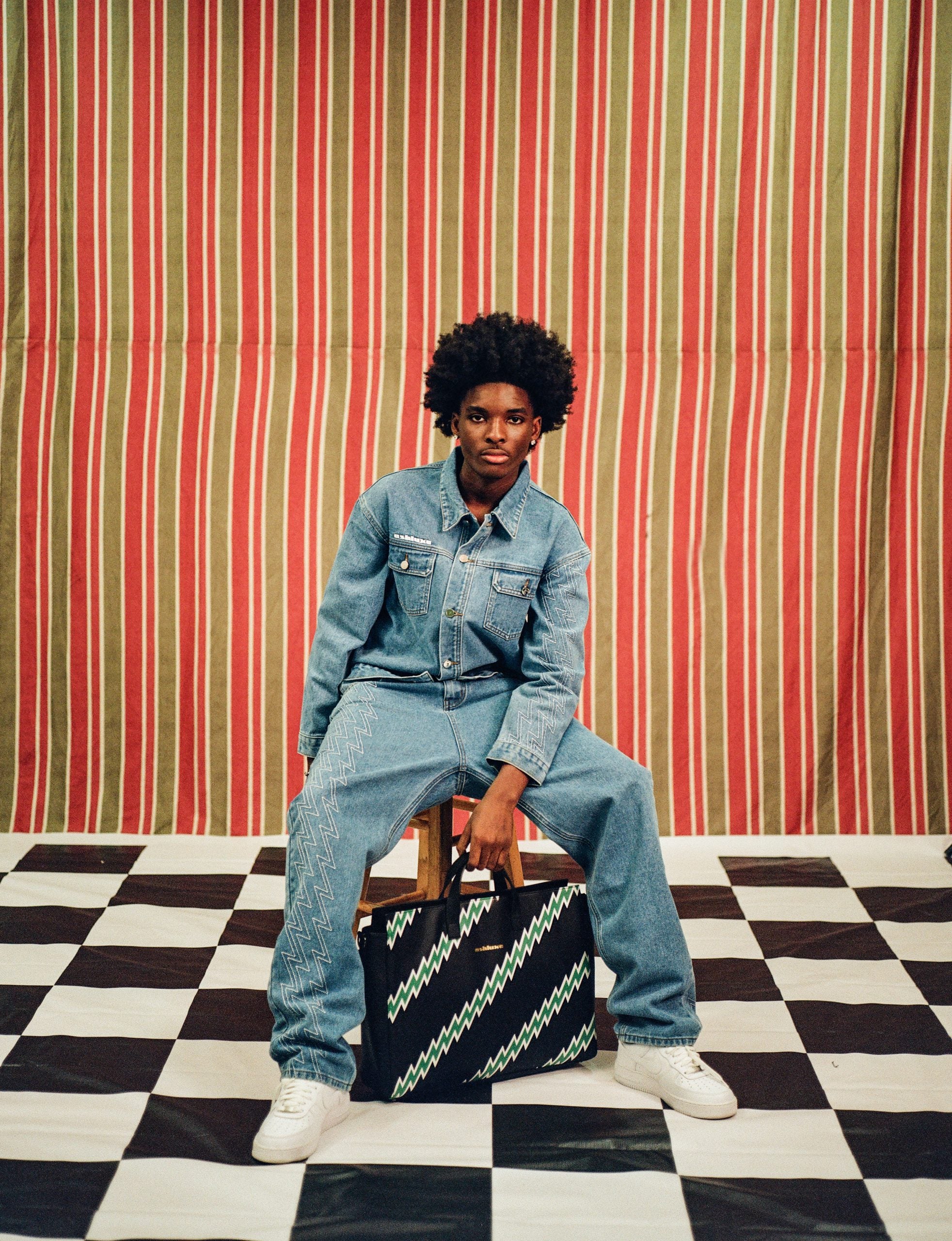
Ash notes that the relationship-building began a long time ago, even before the past two collections that paid homage to Fela. Notably, Yinka met with them and discussed how to bring a collection to fruition that honored the late activist, musician, and artist. This partnership with Fela Kuti’s family gave Ash a moment to truly lean into creative freedom, and he relishes in that. He mentions he’s incredibly pleased with how the collection turned out.
“Kalakuta Republic,” which is named after the artist’s historic compound immortalizes Fela Kuti in fabrics and celebrates his sonic and political impact in industries that have become Nigeria’s biggest export but also as a figure of style expressiveness and creativity in modern times. The collection includes playful stylish experiments like an elegant feathered coat, furred and sequined jackets, dual-tailored shirts, a ripped-shoulder suit, and a miniskirt that showcases what a modern-day Kalakuta queen would wear.
But Yinka Ash hasn’t left his first-ever business concept to die, he has rather reinvented it into Ashluxury, which is a concept store that serves as a licensed retail and easily allows Africans to purchase their favorite international and local brands. “Ashluxury existed before Ashluxe,” Ash mentioned. “In the beginning, it was one way. It was about bringing international brands and connecting [them] to people in Nigeria. I was just shopping at the time. It wasn’t a product business. As we evolved, as we started to gain a lot of credibility, we started partnering with a lot of these international brands.”
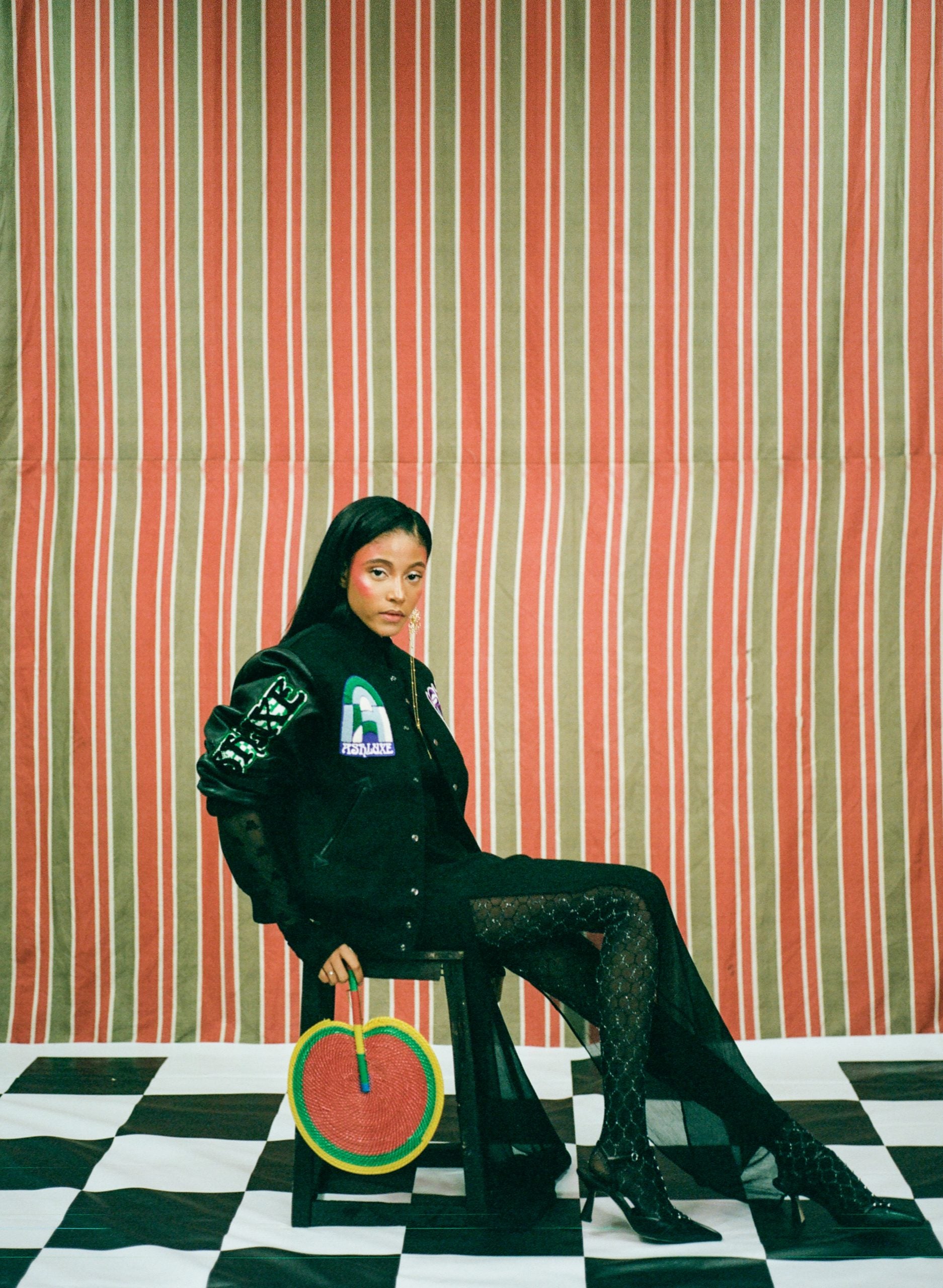
At the moment he says the store stocks over 70 international brands that he is licensed to sell in Africa. Ash explains that over time, the brand and the business have both evolved–similarly, he notes he has evolved on an individual level.
Above anything, Ash is delighted by the community he has built so far and he’s very keen to stretch these hands to everyone who might be in need of it. Their latest incubation program at the Yinka Ash Arts Research And Technology Program (YAART) has also been used to thread his community together. The program educates upcoming entrepreneurs and creators and nurtures their skills in a series of seminars and training.
Moreover, he credits his leadership skills as one of his strongest capabilities in navigating the business of fashion. He expresses that creativity alone wouldn’t have gotten Ashluxe to where it is now and he’s grateful for all he has accomplished, especially with these large communities of people that have found a home in his brand.
